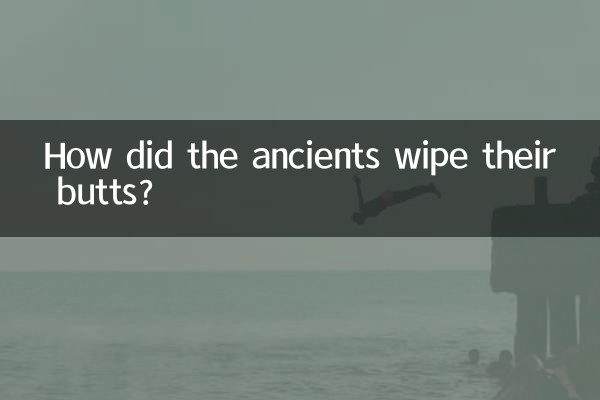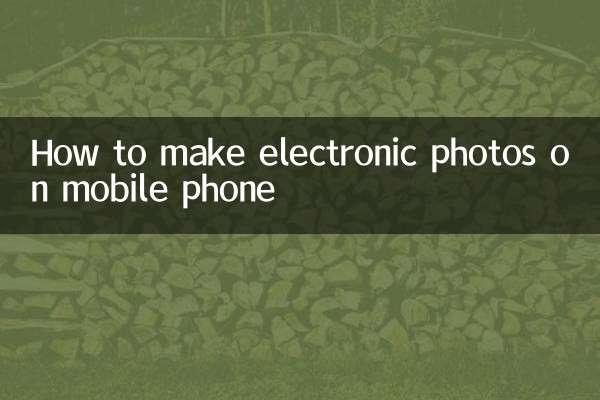How did the ancients wipe their butts: looking at ancient toilet culture from historical documents
In modern society, toilet paper has become an indispensable product in daily life, but have you ever wondered how ancient people solved the problem of cleaning after using the toilet? This article will start with historical documents and archaeological discoveries to reveal the mystery of how ancient people wiped their butts, and attach structured data to display relevant archaeological discoveries.
1. List of ancient butt-wiping tools

The way ancient people wiped their butts varied from era to era and region to region. The following are the main tools recorded in ancient books and archaeological finds:
| Tool name | period of use | Document source | Remarks |
|---|---|---|---|
| Toilet chips (bamboo wood chips) | Han and Tang Dynasties to Ming and Qing Dynasties | "Northern History" and "Zizhi Tongjian" | Bamboo wood slices about 10-15cm long |
| clods/stones | Primitive society to the Han Dynasty | Oracle records | Relevant traces found in some sites |
| leaves/grass | Pre-Qin to modern times | folk oral history | Mulberry leaves, banana leaves, etc. are more common |
| silk/fabric | Used by nobles | "Shishuoxinyu" | Only for the rich |
| water washing method | islamic region | "Records of the Western Regions of the Tang Dynasty" | Clean by hand and water |
2. Ancient sanitary facilities found in archaeological discoveries
In recent years, archaeological excavations have revealed a variety of ancient toilet remains. Here are some important discoveries:
| Site name | era | Discovery location | Characteristics of health facilities |
|---|---|---|---|
| Mausoleum of Prince Xiao of Liang in the Western Han Dynasty | 2nd century BC | Henan Yongcheng | Equipped with stone toilet and drainage system |
| Ruins of Chang'an City in Tang Dynasty | 7th-9th century | Xi'an, Shaanxi | A large number of toilet chips found in public toilets |
| Lin'an City in the Southern Song Dynasty | 12th-13th century | Hangzhou, Zhejiang | Professional "tilt toe" to collect feces for fertilizer |
| Forbidden City in Ming and Qing Dynasties | 15th-20th century | Beijing | Use Gongtong, which is specially handled by eunuchs |
3. Interesting stories about ancient people using the toilet
1.Toilet God Belief: There is a folk custom of worshiping Zigu, the toilet god, which reflects the importance that the ancients attached to going to the toilet.
2.Li Bai's toilet poems: Li Bai, a poet of the Tang Dynasty, was inspired by the phrase "Floating down three thousand feet" in "Wanglu Mountain Waterfall". It is said that he came from his observations while using the toilet.
3.Wang Anshi reads in the toilet: Wang Anshi, the prime minister of the Song Dynasty, had the habit of reading in the toilet. He often lost track of time, resulting in paralysis of his legs and feet.
4.The mysterious death of Jin Jinggong: According to "Zuo Zhuan", Jin Jinggong in the Spring and Autumn Period accidentally fell into a manure pit and drowned.
4. Comparison of ancient and modern health habits
Compared with modern times, although the way the ancients used the toilet had many inconveniences, it also reflected the wisdom of adapting to local conditions:
1.Material selection: Ancient people mostly used natural degradable materials, which are more environmentally friendly than modern toilet paper.
2.Resource circulation: Manure is recycled as fertilizer to form an ecological cycle system.
3.hygiene awareness: Although the tools are simple, ancient medical books such as "Qianjin Prescription" have emphasized the importance of washing hands after going to the toilet.
4.social division of labor: The professional excrement collection and processing industry appeared in the Song Dynasty, hundreds of years earlier than in the West.
Conclusion
From bamboo toilets to modern toilet paper, the evolution of human toilet civilization reflects the improvement of living standards and progress in hygiene concepts. Understanding the way the ancients wiped their butts can not only satisfy our curiosity, but also allow us to see the similarities and differences in the wisdom of life in ancient and modern times. Next time you use soft toilet paper, think about those ancient ancestors who used to make the most of everything.

check the details

check the details